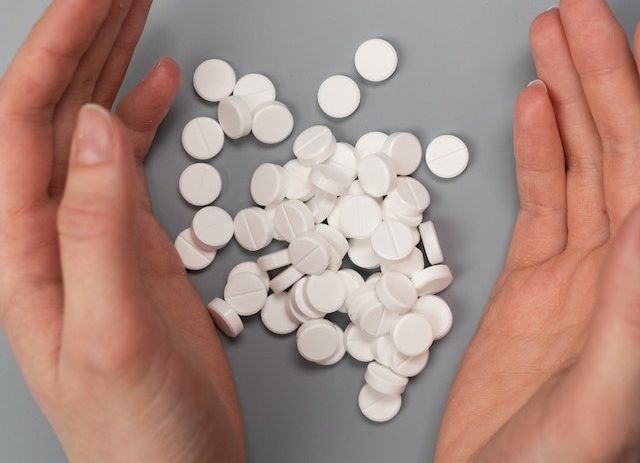
11 Nov What is Oxycodone? Uses, Benefits, and Side Effects
Oxycodone is a drug that was once highly popular in treating moderate to severe pain. It is made of morphine, related to the poppy plant, and binds to opioid receptors in the central nervous system. It has now become a very popular drug of choice among the narcotic abusing population, according to the DEA. Oxycodone can offer many patients undergoing various health issues with the release of pain and discomfort. Unfortunately, this drug is highly addictive and puts many individuals at risk of developing a dependence on it long after it is needed.
For some patients in chronic pain, this drug can provide the only relief from the crippling agony they suffer daily. Oxycodone, when used as directed and monitored by a physician, will not provide long-term harm to the patient. This drug becomes a problem when it falls into the wrong hands and is distributed illegally and not monitored.
Table of Contents:
Helpful uses for oxycodone
Oxycodone is an opiate painkiller. Physicians, surgeons, dentists, and many other health care professionals prescribe this drug to patients because they suffer from a serious injury or health condition:
- Severe pain after surgery
- Serious injury causing unbearable trauma and pain
- Helps provide relief to cancer pain sufferers
- In-depth oral surgery
Oxycodone offers pain relief to those who can’t get relief from taking other medications such as ibuprofen, aspirin, or weaker painkillers. Some physicians may have their patients use these other painkillers first to see if they work before prescribing oxycodone. A responsible physician will monitor the usage, make their patients aware of how addictive it is, and let them decide whether or not they want to take the drug.
If oxycodone is taken illegally, a person could suffer from extreme drowsiness and weakness, a slow heart rate, clammy skin, and possible death. This is why many physicians become fearful of prescribing it too liberally and only offer it in extreme cases.
Short and long-term side effects of oxycodone
As with any drug, over the counter or prescribed, there are side effects to oxycodone. Once you start taking the drug as prescribed, there are short and long-term side effects to look out for and alert your physician. Many patients on this drug experience nausea, vomiting, constipation, dizziness, and fatigue. These are fairly common. If you notice these symptoms becoming worse, notify your physician right away.
An individual may also develop seizures and a slower breathing rate after they begin taking the drug. These symptoms should be reported to your physician immediately, and you should stop taking the drug until you hear back from your doctor.
If you take oxycodone more than you should, or if you become addicted, more serious, long-term side effects will appear.
- Depression
- Aches and cramps
- Swelling

These are only a few side effects. If a patient does not seek help for their addiction to oxycodone, the symptoms could progress as far as falling into a coma, the pressure of a spinal fluid, and death. The side effects of taking oxycodone should be taken very seriously and monitored closely. Speak to your physician if you feel yourself becoming addicted or noticing any symptoms of the side effects.
When monitored, this drug can be beneficial, but if a patient becomes addicted, you will have a much bigger problem than what you originally prescribed it for. Make sure to stay proactive in your treatment and be open and honest with your physician along the way.
Withdrawal symptoms
Not one person wants to become addicted to any drug. Oxycodone is a prescribed medication for a specific reason, and patients sometimes don’t think they will fall victim to addiction. Many patients never think they will be the one who gets addicted. But unfortunately, more times than not, addiction to oxycodone starts with a harmless trip to the dentist.
You can find yourself suffering from horrible pain after an abscessed tooth was removed, or you could have had your wisdom teeth pulled. The pain is so horrific that your dentist felt it was necessary to give you a prescription for oxycodone. Now, you innocently have the prescription filled at the pharmacy, and weeks later, your pain is gone, but you are still dependent on oxycodone.
After confronting yourself in the mirror, you decide to face your addiction and stop taking oxycodone. Depending on how long your body was addicted to the drug, withdrawal symptoms can be minor to severe. Every person is different.
- Fatigue
- Muscle pain
- Vomiting
- Diarrhea
- Fever
- Shaking
- Chills
These are the most common symptoms, but everybody reacts differently when detoxing from an addictive substance such as oxycodone. If you are going through withdrawal, you need to be monitored closely by a physician because you need to be sure your vital signs are being monitored, and you may need medication along the way to help you through the process.
Drug rehabilitation
It is very hard to overcome drug addiction on your own. Once you take the first step and admit you have a problem, you need to seek help from a medical professional. Drug rehab counselors, facilities, and all rehab professionals are highly trained to help any addict through the detox, recovery, and treatment process.
Drug rehabilitation is the entire process from start to finish on a person’s journey to staying clean. Rehab provides medical, physical, and mental treatment to anyone suffering from an addiction such as alcohol, drugs, or any addictive substance.
Drug addiction can be a lifelong battle for many individuals. It is important to know what help is available to you. Several resources and services are at your disposal, along with agencies and services that want to help you with addiction. Take advantage of them and talk with educated addiction professionals about your situation.
Different types of drug rehab programs
Anyone seeking help recovering from addiction should understand the three different types of rehabilitation services available.
Inpatient
Inpatient drug rehab is when you decide to sign yourself into an inpatient facility for an extended time. The amount of time could be anywhere from 30 to 90 days or even more. The reason for the difference in time depends on many factors; the treatment you are looking for, the type of program you are committing to, your insurance coverage, and there could be many more.
As an inpatient, you will only have certain allowed times for visitors and phone calls. You will undergo treatment on a strict schedule with 24/7 monitoring. Each facility varies in its structure, but you will have group counseling, one-on-one counseling, and other interactive treatment activities that will help you on your road to recovery.
Outpatient
Outpatient rehabilitation is a type of treatment with the least amount of supervision. You will be able to schedule days and times at your convenience to go to the facility and see a counselor for either group therapy, one on one counseling, or both. The staff will give you any prescribed medications during your visits, and they may take your vital signs, and any other health screening they feel may be needed.
This type of therapy is okay for individuals who have a very strong support system at home and are well on their way to having their addiction under control.
In-home
Compared to other options available to those suffering from addiction, this option seems to be the one to beat. In-home rehab provides private treatment for your addiction. Physicians trained in addiction rehab will develop treatment plans specifically catered to your individual needs.
This type of treatment can give you the most personalized, professional care at a much more affordable cost than inpatient rehab. The cost is just a bonus to the type of care that in-home rehabilitation provides.
This therapy allows you to schedule treatments when convenient for you in the comfort of your home. You have the most support in your home, being surrounded by your closest family and loved ones.
A patient going through detox will have a much more comfortable experience being at home. Although withdrawal symptoms can be harsh, a medical professional will be with you every step of the way monitoring your vital signs and administering medication if needed.
Elite Home Detox
Elite Home Detox offers a physician-supervised, in-depth drug detox program. A qualified professional will design a treatment plan that specifically suits your needs. The treatment will take place in the privacy of your home, and our staff will be with you from start to finish.
We will make sure you have lifelong access to treatment, counselors, programs, and any other service that is vital to your commitment to stay sober. Our support services are unlike any other, and we want our patients to understand how important it is to use every bit of help available to them.
Call us today and set up a consultation.
Detox Safely At Home With Elite Home Detox
With Elite Home Detox, you will be assigned a care coordinator to help keep you on-track to support your recovery. Once a custom rehabilitation plan has been developed between you and your expert team, one of our team members will come to your home and stay with you as you detox discreetly in the comfort of your own home.
Once detox is complete, we will work with you to create a practical and effective aftercare plan complete with ongoing recovery support. We can also help counsel friends and family on how they can best support you in taking this next step. We’re here and ready to help. Reach out to us for a custom consultation today!


